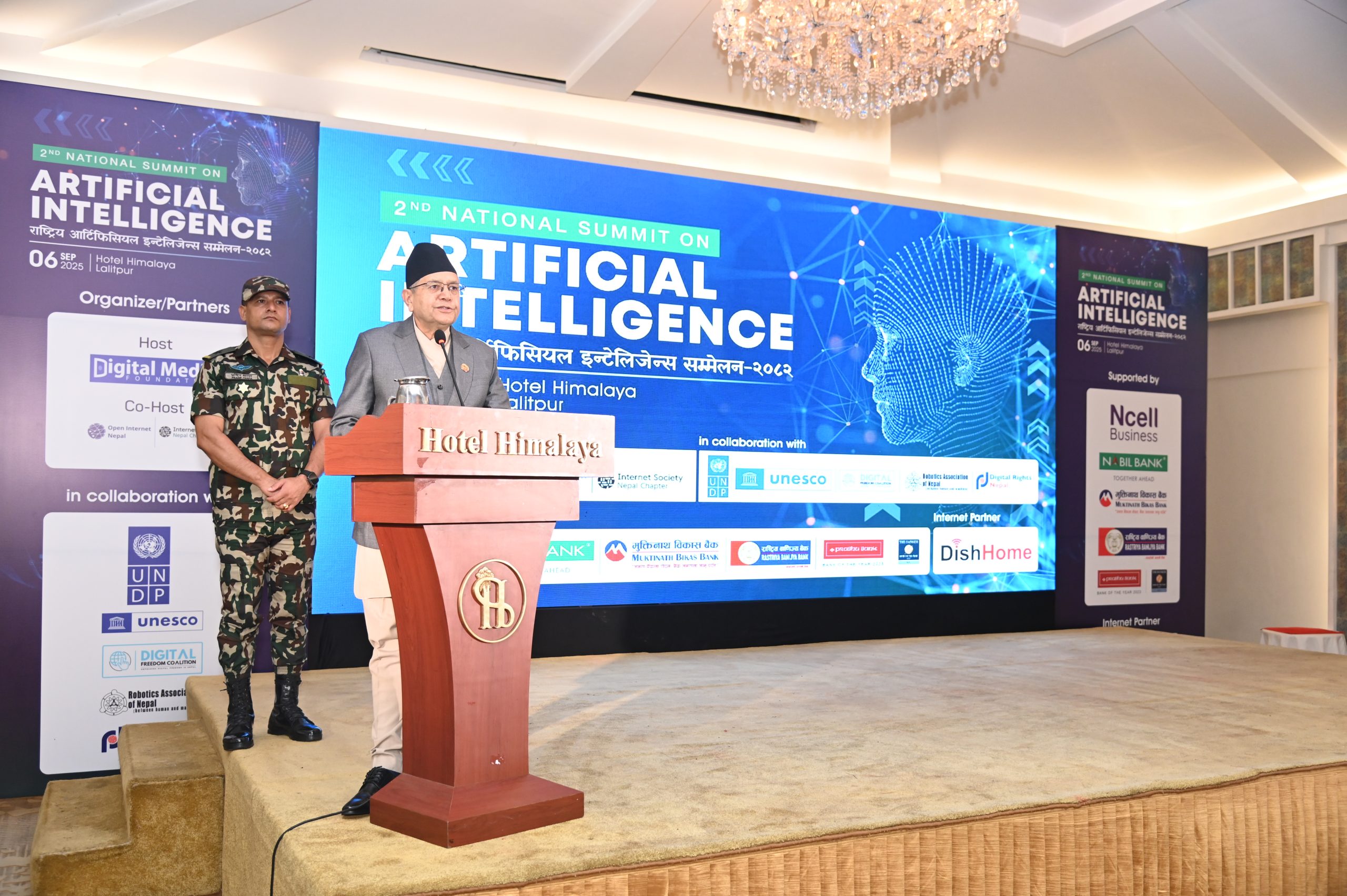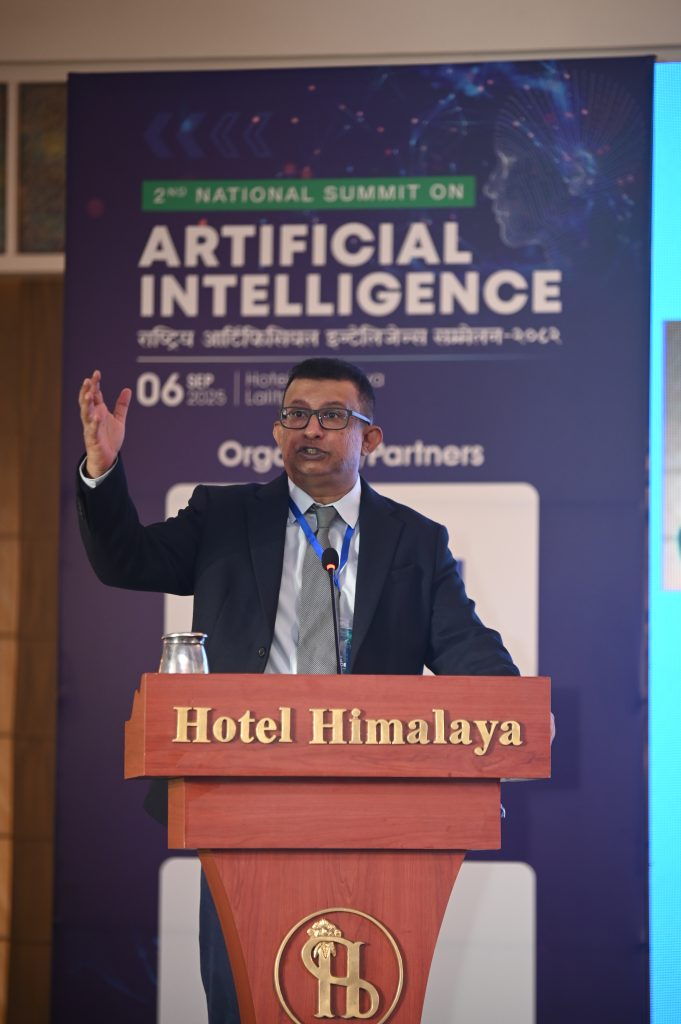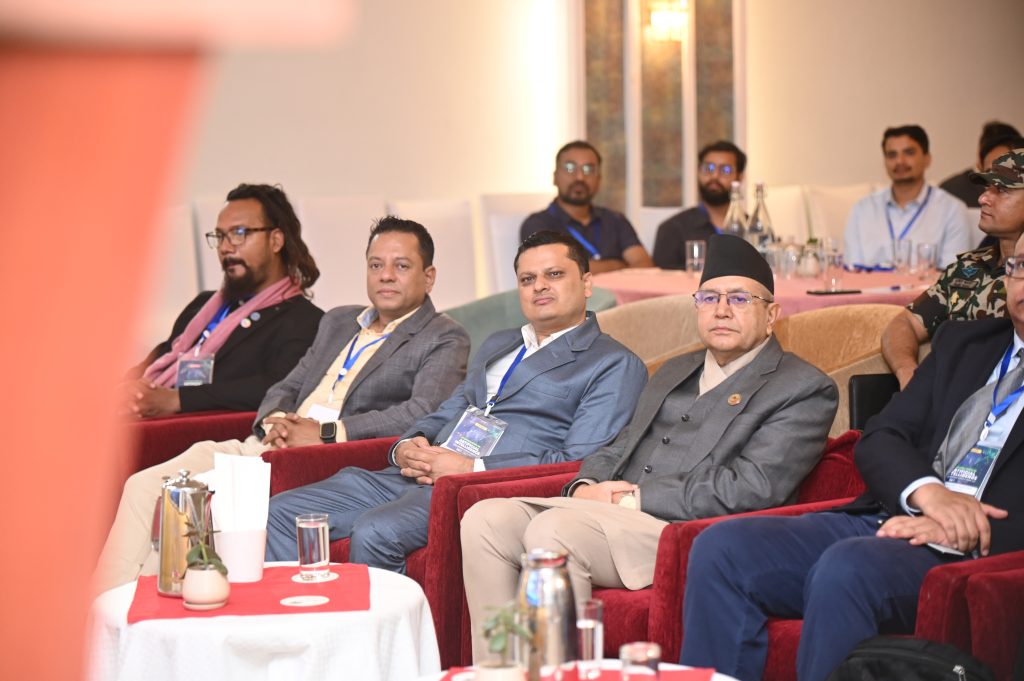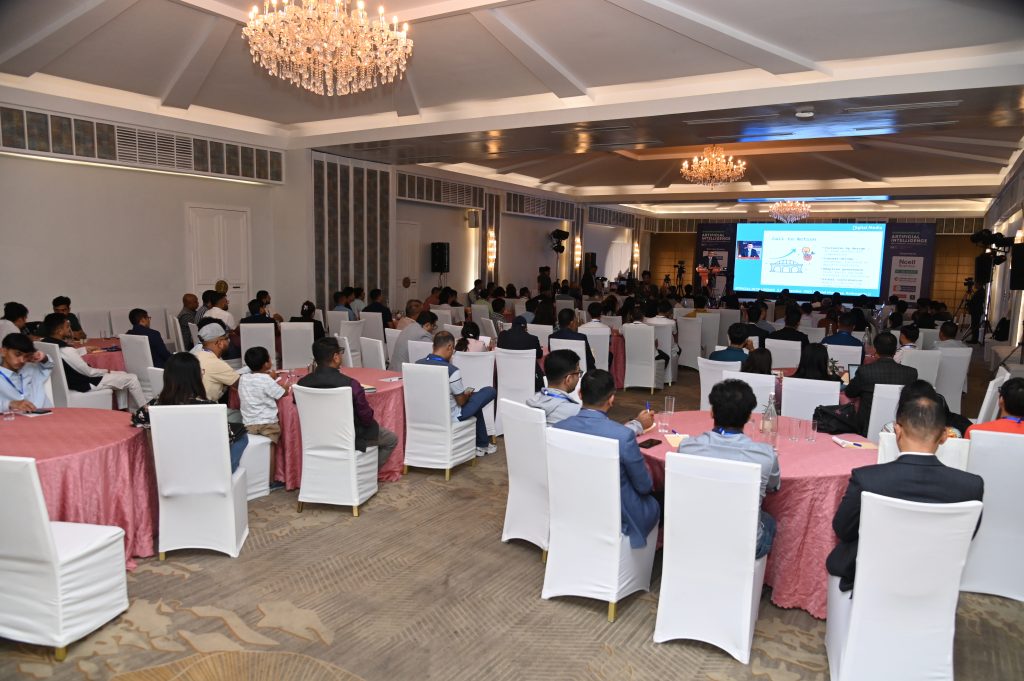
Kathmandu: The ‘Second National Summit on Artificial Intelligence-2025’ concluded in Kathmandu. The conference, organized by the Digital Media Foundation, was attended by a significant number of national and international AI experts, lawmakers, high-ranking government officials, researchers, and individuals from the IT and finance sectors.
The conference, organized at a time when the government was banning major social media platforms, saw an in-depth debate on Nepal’s policies and legal frameworks related to IT, including AI. Speakers have concluded that Nepal has failed to address the complexities of rapidly evolving technology by not formulating a timely technology policy and necessary laws. Many stressed the need to remove the network blockages, saying that the government’s move without consulting stakeholders has seriously affected the essential communication, livelihoods, and practices of the digital economy of the common people.
Inaugurating the conference, Speaker Devraj Ghimire said that the parliament alone cannot formulate laws to regulate the complex aspects of technology, emphasizing that the right regulatory laws can only be formulated through a multi-stakeholder effort involving the parliament, government, technology experts, and the general public. Stating that technology-related laws are a top priority for the parliament, he informed that preparations are underway to make parliamentary practice faster and more effective with the help of AI.

As the keynote speaker, Shriganesh Lokanathan, Asia Pacific Regional Digital Transformation Specialist of the United Nations Programme on Development, emphasized that AI should not be viewed as a mere technology but as a tool for development. Emphasizing the need to build a holistic ‘ecosystem’ that involves the government, civil society, the private sector, and UN agencies, he said that sharing experiences and collaborating with other countries at similar stages of development would be important in this regard.
Digital Media Foundation President Prabesh Subedi said that the sudden shutdown of social media platforms, which are widely used in the world, in Nepal is not a matter of national shame, but rather a failure to formulate practical policies and laws in a timely manner. ‘Despite having more than 20 years, we did not have a deep debate on how to regulate technology, nor did we set clear standards, which led to this situation today.’ Subedi said that if there is no focus on multilateral meaningful debate, similar complications will arise in AI regulation tomorrow.
Speaking at the session titled ‘Developing Nation Perspective in the Global AI Race’, University of North Carolina Professor Dr. Nir Kshetri said that the use of AI in Nepal is almost zero compared to the US and other developed countries. Lack of quality data, lack of practice in many local languages, and the absence of technologies such as blockchain and metaverse are challenges for Nepal, Dr. Kshetri stressed that Nepal should not build basic systems like digital identity cards and data exchange as technology for technology’s sake, but rather increase the use of AI according to local priorities to solve real problems such as education, health, agriculture, and climate change.
Neenaz Ichaporia, Head of Education and Technology at the British Council, said that the AI technology being developed recently will bring about a major change in the education system, especially if the challenges of AI can be avoided, such as discrimination based on local culture and linguistics. It will be of great help in developing educational inclusion. It will especially help in including people with disabilities in education, she added.

UNESCO Representative to Nepal, Jaco du Toit, said that AI will create many opportunities for freedom of expression, promotion of indigenous languages, education, and access to information and services for people in rural areas. Stating that UNESCO has recommended four principles for the development and adoption of AI: human rights and dignity, environmental sustainability, diversity and inclusion, and peaceful and just societies, he said that these principles should be taken into account while regulating to avoid the risks posed by AI.
Laxman Datt Pant, founder of Media Action Nepal, pointed out that there is a lack of common understanding among stakeholders and the general public about the perspectives of AI and how to use it. Pant said that AI will make life “easier and faster” if it can be emphasized that more investment is needed in resources, engagement, and stakeholder participation.

The conference held under the slogan ‘AI and Development: Bridging the Gap, Building the Opportunities’, featured discussions on ‘Developing Countries’ Perspectives on Global AI Competition,’ ‘AI for Nepal’s Banking and Financial Transformation,’ ‘AI for Quality Healthcare in Resource-Limited Environments,’ ‘From Media to Politics: The Misinformation Landscape in the Generative AI Era’ and ‘From Citizens to Parliament: How AI and Other Technology Policies Shape Our Future’ by subject matter experts, lawmakers and stakeholders.